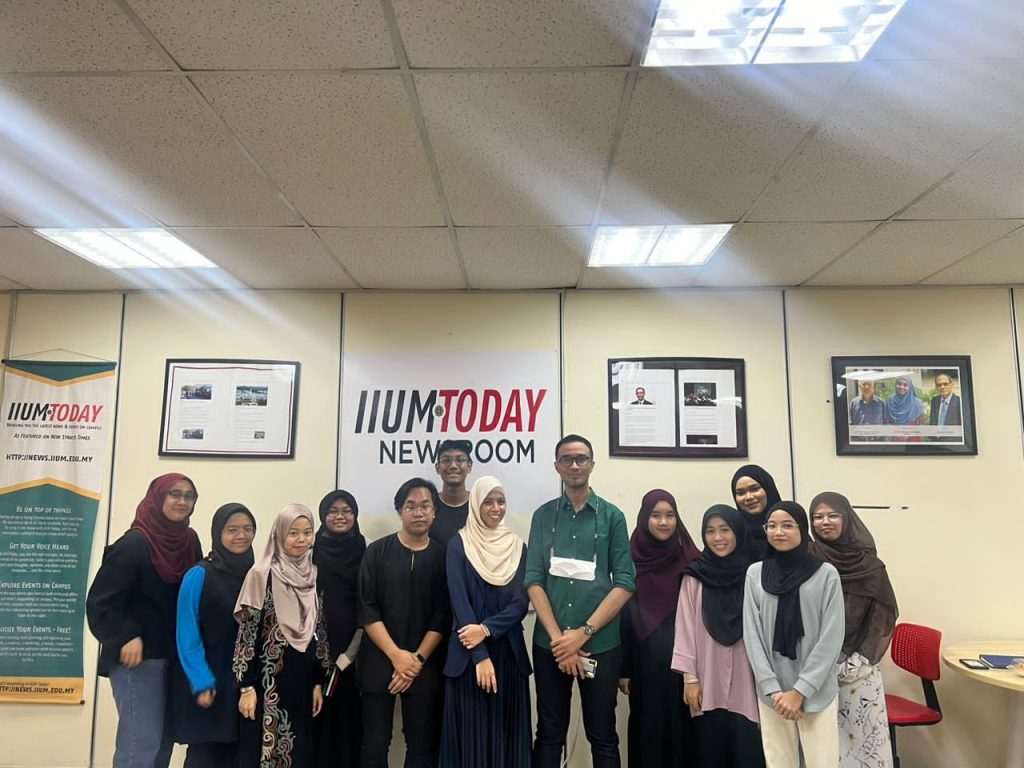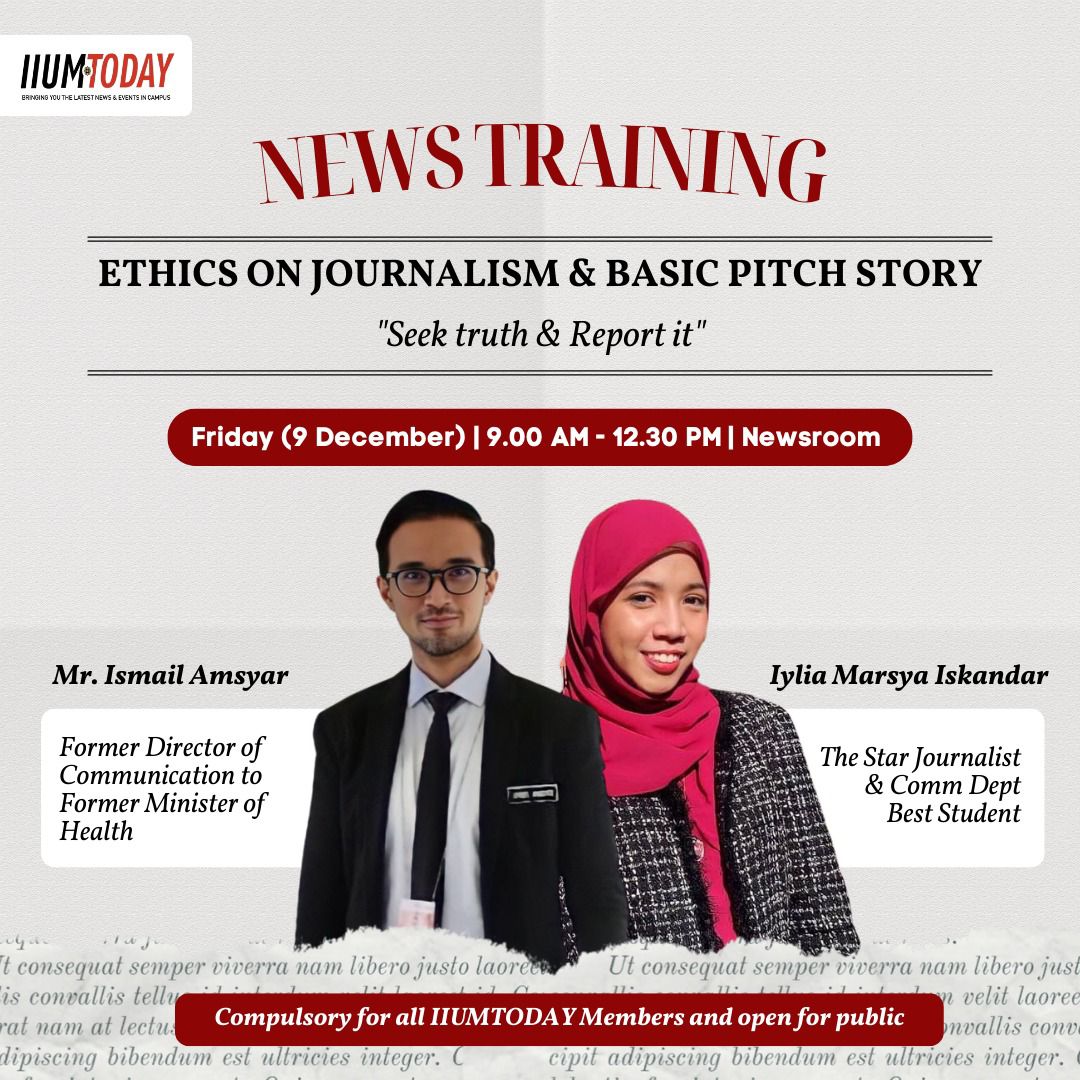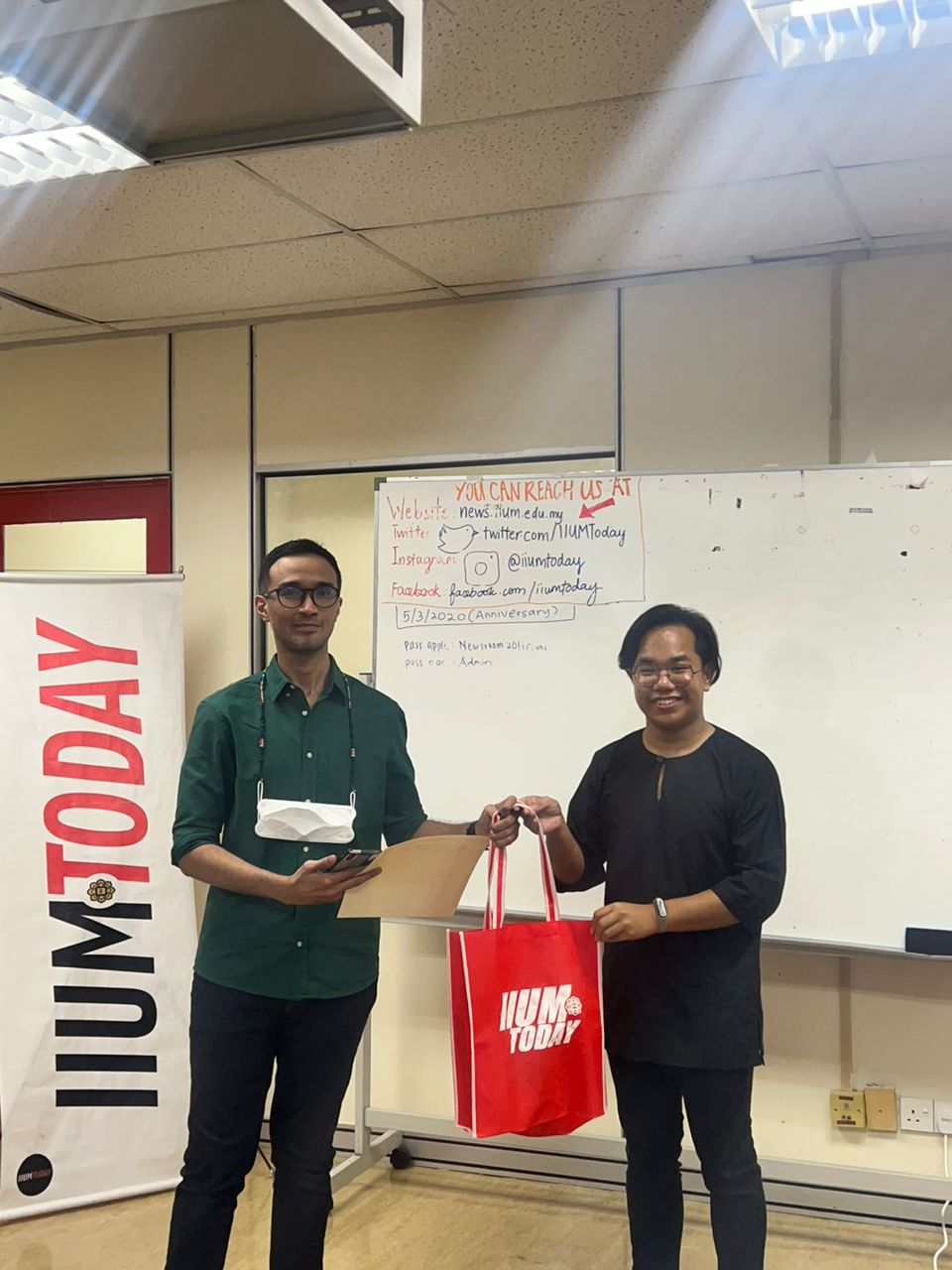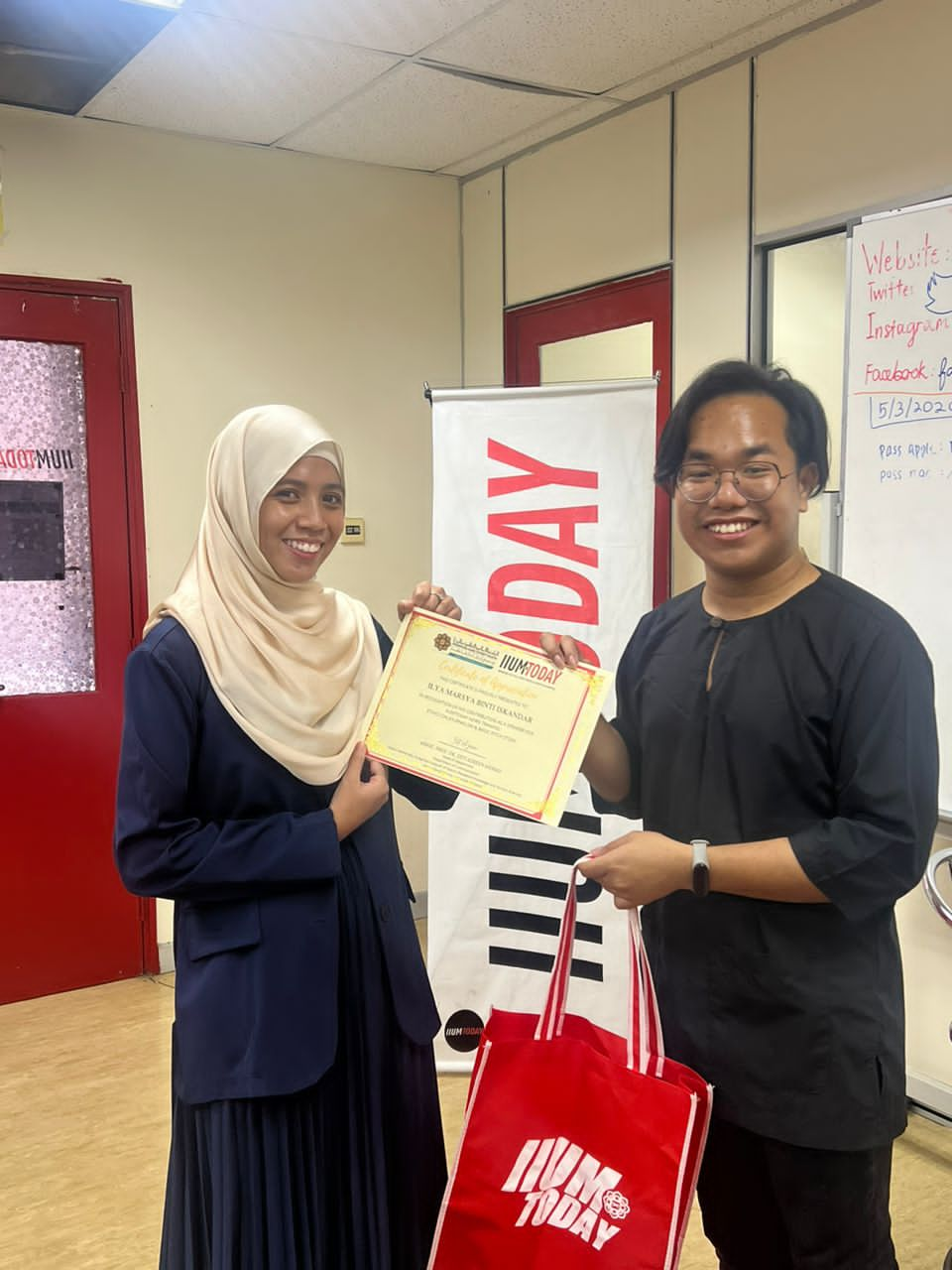By Irdina Zainudin
GOMBAK, 11 December 2022: IIUMToday returned with another news training program, entitled, Ethics on Journalism and Basic Pitch Story on Friday (9 December).
Two special guests were invited to speak in the training program; former Director of Communication of the former Minister of Health and former journalist, Ismail Amsyar, and The Star journalist and newly awarded IIUM Best Student in Communication, Iylia Marsya Iskandar.
Being a journalist does not only mean one should only write the best news stories but also remain ethical while doing so.
Writing with ethics in mind is not only common sense, but it is also important for all to carry out because this will determine the reporting of interviews, as well as the news that will come out afterwards.
One of the most important ethical practices mentioned in the training was of the journalist’s etiquette when interviewing.
œDont push them (interviewees) to answer your questions, Ismail said as he spoke about one of the stories he was covering.
The importance of practising ethics is especially true when covering a tragic event, as utmost respect towards interviewees must be upheld, less the journalist will and can risk their safety in their efforts to cover the story.
œIf one is to take photographs of a dead body “ if the case involves deaths “ the photographer or journalist should only take a picture of it from the torso and below, leaving the face blank as a means to guard the privacy of the dead person and his or her family, he added.
Asking for consent from interviewees is always a must when it comes to the ethics of journalism.
Hence, all journalists should always remember to ask for their interviewees’ consent for an interview and never force or pressure them to do one.
The former Director of Communication also reminded the participants to do a lot of research when they write any type of stories; be it news or feature articles.
Marsya, the also agreed to this, as she mentioned that journalists needed to conduct a lot of interviews, especially with the authorities to further support the news story.
Furthermore, both Ismail and Marsya underscored the utmost importance in protecting the sources, especially when the source of information is from an interview “ or if the interviewee’s safety or image can be threatened.
All of these measures are taken to protect not only the interviewees but also the journalists themselves from having any further action taken against them due to any identity disclosures.
œYou cant disclose your sources, you need to replace their names to either source or anonymous (anon), Ismail advised. He continued to talk about how journalists needed to be creative when researching for information.
This is why the anonymity of sources is important because aside from protecting the safety and images of both parties, the journalists can maintain an amicable relationship with the interviewees after the news is published, especially when covering big news.
œYou need to always try to be likeable, be someone pleasant, Marsya said as she continued how this would help journalists in the long run, as it has done to her.
Ismail said, œDont be the reporter with the goal of covering a story but comes back empty-handed.
He also added that a journalist should always be ready to cover any story anywhere, as he did when he talked about his experience writing a piece of news when he was in London.
Both Ismail and Marsya clearly showed that being a journalist is not only concerned with ones capability of writing good news, or spotting one, but it also means that one needs to maintain a high level of etiquette when dealing with people.
Moreover, as a journalist, you need to understand your content clearly before writing headlines because they will be the first indication of the news or feature articles’ focus before the readers proceed to read the full article.
However, both Ismail and Marsya stated that if one is uncertain about the headlines, or if the headlines are borderline to making accusations, which can lead to serious issues, the easy way out is either to use more subtle words or to a question mark at the end of the headlines.
œBe careful with headlines, and always practise ethics, the former Director reminded all participants.
œSometimes, stories with headlines that have question marks are published without by-lines to protect the journalists or reporters identities and safety, the Star journalist said.
She also reminded participants to always carry out fact checks on their information and sources whenever they write a story and before submitting it to the editor before getting it published. Even one misinformation in the news, despite how small or big it is, can cause harm to those involved “ which can also lead to the loss of the journalist’s credibility to the public.
œKeep the stories real “ do not over sensationalize them, she added.
Aside from ethical principles, which each future and current journalist should always adhere to, the news training also covered the basics of pitching stories by both speakers.
Throughout the training, Marsya, talked about the publishing process that takes place at The Star.
It is a long process but to get good news published, there should be extra care given to the information written.
It is clear that ethics is very important to journalists as without it not only will their relationship with others be affected but also their credibility as a journalist.

News training is conducted every semester to expose its members with the real journalism practices and help them find their niche.
The session was held from from 9.00 a.m until 12.30 p.m and was officiated by the Editor-in-Chief, Asst. Prof. Dr. Wan Norshira Wan Mohd Ghazali at the IIUMToday newsroom.***


